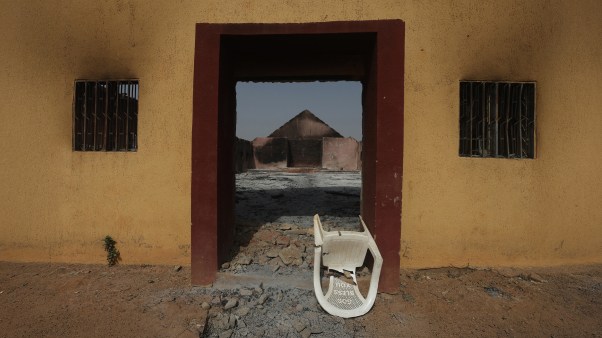Something is awry in the mission commitments of many congregations. Enthusiasm is easily generated for short-term missions, yet career missionaries discover that few people want to hear about their work. Auctions and car washes raise funds for short-termers, while money for established projects can suffer.
Unfortunately, much of our short-term work fosters dependency instead of empowering people. And because of inadequate preparation, some short-termers damage existing Christian witness or exhaust missionaries and national leaders.
Harsh words? “Surely that’s extreme,” many readers may respond. “My grandchild went on a short-term mission and came home a new person.” Granted, I too have sent my sons on short-term youth missions and will continue to do so. Christian parents should wish for their children a vision for mission.
But any strategy that deflects resources from long-term to short-term workers, even indirectly, is surely misguided. One flagship megachurch with a budget of $15 million aims to send 8,000 of its members on short-term missions trips annually, while supporting no career missionaries. This may be an extreme example. Yet why do so many congregations assume they must see missions firsthand before they will give? Why do they need to see videos of themselves on location before they care about missions?
Prayer, money, and enthusiasm must focus on long-term workers-both nationals and expatriates-viewing short-term workers as a complement to them. Writing on the downturn in career missionaries, Robert T. Coote says:
In a world where hundreds of millions have yet to hear the name of Christ and additional millions have not heard the gospel presented effectively in their cultural context, there is no substitute for the career missionary. … One can take only limited satisfaction in reports of uncounted thousands of short-termers engaged in mission, of local churches and schools undertaking cross-cultural ‘exposure’ forays. … [Short- termers] cannot balance a real decline in long-term commitments by men and women who are prepared to take a profoundly incarnational approach to communicating the gospel of Jesus Christ to people of other cultures. (International Bulletin of Mission Research, Jan. 1995)
Counting short-term blessingsShort terms (which some define as any period up to two years) can be a great blessing—with safeguards. When a church sponsors short-termers, giving and prayer support may increase; and some short-termers feel called to long-term service because of their experience.
My own large church (University Presbyterian, Seattle) is an example of short-term missions stimulating increased missions giving. We have pioneered mission work in Albania for the past five years or so. During this time, 22 of our members have given a total of 57 years of service in that country, the majority two years or less. Our church budgeted $60,000 for this work. However, the total giving to support these 22 people and their associated projects has been $500,000! But most of this giving was stimulated by the “middle-term” people who learned the language.
Some short-termers come back changed, with a bigger view of God and the world and an increased willingness to risk for his kingdom. Short-termers can bring Christ to “restricted access” regions where missionaries are not allowed to settle or extend a national church’s or long-term missionary’s ministry. They can provide a vast pool of resources for huge events, like evangelism at the Olympics. Meeting short-termers may encourage nationals in their own witness. And, humbling though it may be, sometimes their contribution is comic entertainment for the locals—no small gift.
Cautionary talesIn this post-Cold War, inward-looking era, we can thank God for any Christians who want to bless the nations. To maximize the benefits of short-term missions, however, we must face three issues: time, intent, and training.
Time. It takes time to learn a language. It takes time to fall into the ground as a seed and lose our life, only to find it again in a hundredfold growth among another people. If love and listening require time anywhere, how much more this is the case when cultural contexts are radically different.
Do short-termers adjust calmly to scorpions on the kitchen table? Foreign life is neither exotic nor simply a cauldron of problems. Foreign life is merely another set of arrangements viewed best through local lenses. It takes time to adapt to this.
And it takes time to absorb how to make local patterns work. From the people’s perspective, what is the right way to plan a schedule? To expend money and account for it? To exercise authority? To take initiative? To settle quarrels? These patterns are not mastered in the first week off the plane. God in Christ took 33 years in one place. It takes time to be a friend.
Intent. Let’s be honest: In much of our short-term service, we are the ones who benefit most. Volunteer work is therapy—”feel good” service. Is this an appropriate objective of our mission efforts?
What is top priority—our benefit or others’? Although Christ went to the cross motivated by the joy beyond, he did not take on human form primarily to enhance his own experience. Do we have the right to use others to sensitize us to poverty and lostness if it means dampening their initiative and reinforcing their dependency on outside materials and skills?
What nurses and doctors are taught is appropriate for missionaries, too: “First, do no harm.” To say that something is better than nothing is no justification for poor mission work. Some mission work—even though it stimulates us—can be worse than nothing.
Years of gracious witness by local believers and missionaries can be damaged by careless “tourists for Jesus,” for example. And a noncontextualized witness can inoculate people against the gospel when a more attuned witness arrives.
For indigenous Christian leaders, regular short-term help can nurture dependency and retard grassroots leadership development. When people wait for the planes to fly in with supplies and experts, they are not empowered; they have become dependent on outside aid.
Too often we swoop down to clean up a disaster at the bottom of a cliff when we ought to be helping the people build a fence across the top. We should stop and ask: Why are so many people sick? Poor? Uneducated?
Frequently, local Christians have some answers. They see causes. They can suggest preventive measures. They can prescribe potential infrastructures to enable their people to build their own churches, publish their own books, and train their own preachers.
But such solutions are complex, risky even. For the sake of feeling good about our efforts, we pragmatic Americans like quick, measurable solutions: Ten wells dug. Ten dramas performed. Ten sermons preached. One hundred people won to Christ. We do not like long discussions fraught with ambiguity and long-term strategies with potential for failure—especially when we don’t even speak the language.
Training for effectiveness. Many short-termers have a heart for the Lord but only a sketchy knowledge of Scripture, little experience in evangelism or apologetics, and a lackadaisical practice of spiritual disciplines.
How well can they answer the question, Who is Jesus? for example, and do they know how he is interpreted in another culture? As a great prophet? The cosmic power that infuses all reality? One of many incarnations of God? Are short-termers trained to discuss such distinctions winsomely and persuasively? What if indigenous concepts of God, human nature, sin, and revelation are part of a system alien to American ways of thinking?
Do the short-termers we commission know the great themes of Scripture? Do they know how to discuss “difficult questions” with non-Christians? Are they experienced in sharing their faith with others? In helping a new Christian grow? In mediating interpersonal conflicts? Are they faithful in their own practice of daily spiritual disciplines?
Even the carpenter, the surgeon, and the “closed country” visitor whose witness is largely “Christian presence” need to be able to give an answer for the hope that is in them. Well-prepared teams often find a chance to witness in the most formidable places. Poorly prepared teams see the chances of a lifetime slip away.
Cultural knowledge and interpersonal skills deserve thorough attention, too. For example, the frequent “immodesty” of short-termers’ dress and body language appalls long-term missionaries, who cry for better cultural orientation.
Watch out for short-term missions! Better yet, improve them. Give short-termers the most thorough preparation possible. Send them to projects that empower local people, at the invitation of the locals. Do not drain people already on the field. Do not drain donors of attention, prayer, and money that should be dedicated to long-term workers. With these safeguards, short-term missions can offer ordinary Christians a chance to make a difference, and to bless the nations.
By Miriam Adeney, a contributing editor of ct; she is research professor of mission at Regent College (Vancouver, B.C.) and associate professor of cross-cultural ministries at Seattle Pacific University.
Nine Questions Missions Committees Should Ask
—Do we focus prayer, money, and enthusiasm on long-term missionaries and nationals?
—Do we seek and follow the counsel of thoughtful and appropriately trained indigenous leaders before planning our short-term projects?
—Do we seek to be part of long-term systemic solutions, rather than piecemeal projects?
—Does our work empower locals, leaving them with greater confidence to apply their own resources to solve their problems?
—Do we buy the resources for our projects locally to support the local economy and to model the use of indigenous materials?
—Do we minimize our consumption of the long-termers’ time and resources?
—Do we train our short-termers thoroughly in Scripture knowledge, spiritual disciplines, culture knowledge, and interpersonal skills?
—Do we cultivate humility, recognizing that there are no “instant experts”?
—Do we refuse to evaluate our project primarily by its effect on us?
For practical suggestions on training youth for short-term missions, including follow-up strategies, see Paul Borthwick, “Short-term Youth Teams: Are They Worth It?” (Evangelical Missions Quarterly, Oct. 1996).
Copyright © 1996 Christianity Today. Click for reprint information.










